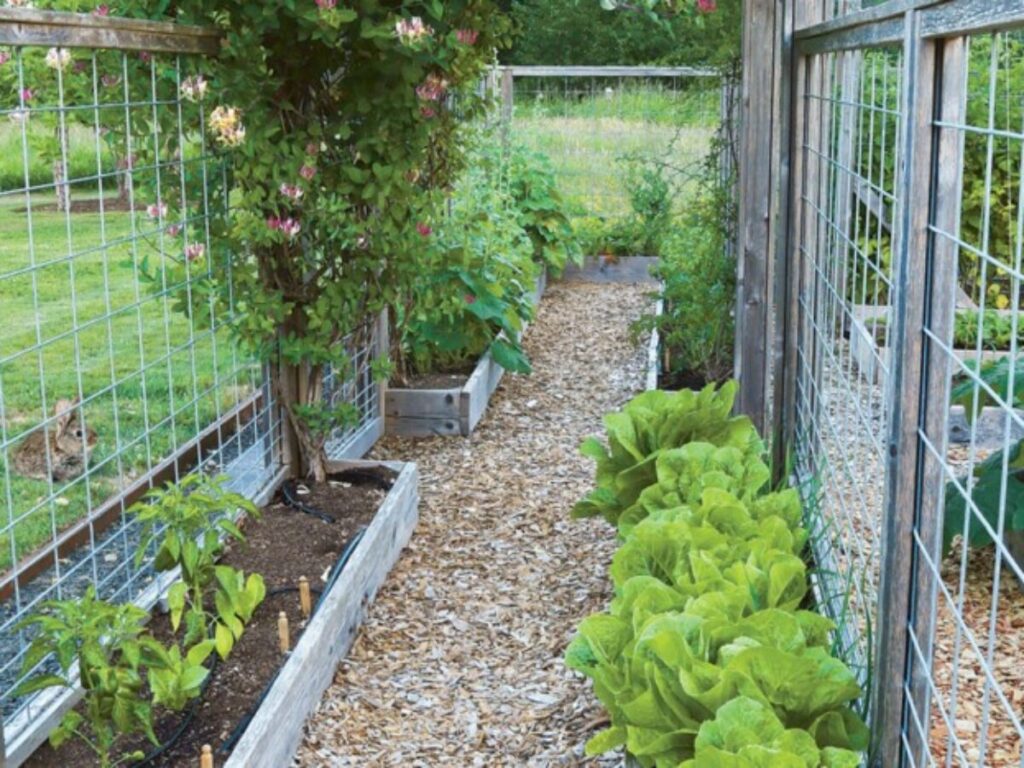Bird fences aren’t always feasible
Whether you’re trying to keep animals out of your vegetable garden or simply have a desire to protect your harvests, bird fences in a vegetable garden may not always be feasible. Many different types of animals can cause damage to your garden, but rabbits, deer, and groundhogs are the most common culprits. While these animals don’t eat the seeds of your plants, they can destroy your plants by digging underneath fences.
Chickenwire fences keep rabbits out
Chickenwire fences are great tools to protect your vegetable garden from rabbits. This type of fencing can be made of heavy-duty galvanized steel or green PVC coated wire. They are easy to erect and use and are a good choice for keeping rabbits out of your vegetable garden. They are also lightweight and easily transportable. You can cut them easily with a pair of scissors or wire clamps.
To keep rabbits out of your vegetable garden, you should install a fence at a height of about 30 to 36 inches. The wire should have a mesh size of one inch or smaller. The lower end of the wire mesh should be buried six inches beneath the ground to discourage rabbits from digging under the fence. In addition to the wire fence, you can use cloth or mesh netting to wrap individual plants. Alternatively, you can use a cylinder-shaped fence made of wood posts.
Wrought iron fences keep deer out
If you want to keep deer out of your vegetable garden, a wrought iron fence is an excellent choice. They are hard to see, which means deer will often ignore the garden on the other side. However, if you use an electric fence, keeping deer out will be much more difficult. To improve your chances of success, consider installing a fence with multiple strands.
The most effective deer fence will be at least eight feet tall with gaps six inches wide. Some cities also require a permit for fences over a certain height, so make sure to research city regulations before installing a fence. Also, consider installing netting over fruit, bushes, and bulbs to prevent deer from eating those plants. In addition, you can also use tree protectors to prevent deer from nibbling on your trees.
Using natural materials to create a fence for a vegetable garden
There are a variety of materials you can use to create a fence around your vegetable garden. You can plant big boulders or other natural materials to create a border around your garden. You can also use large rocks or boulders placed side by side to create rock wall panels.
If you don’t have the budget to purchase natural materials, you can build a fence yourself from wood or wire. Bamboo is an excellent choice as it is naturally resistant to termites and can last for 20 years. Bamboo fences can also be used for privacy fences. Once you’ve installed the bamboo, you can reinforce it with plants and tall grasses.
Another option is to install a fence made of wrought iron, which is weather-proof, strong, and very attractive. You can also make an archway out of black metal and cover it with climbing vines.
Live traps are humane traps for garden pests
Live traps are a very humane way to catch pests in your garden or yard. Unlike poisons, these traps catch the animals alive and release them into the wild. They work well against small rodents like mice, as well as larger animals like squirrels and foxes. They are especially effective when a pest trespasses on your property.
These traps must be monitored closely to ensure that they do not attract other animals. They can also catch neighborhood pets, so it is important to release them quickly.
Did you miss our previous article…
https://yardworship.com/blue-flowers-symbolizing-hope-optimism-ambition-and-desire/

